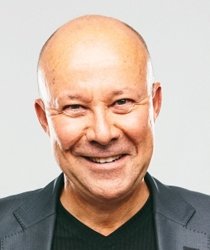From politics to the courts to saving Oscar
March 12, 2018, 3:50 pm

When Saskatoon physician and activist Ryan Meili handily won Saskatchewan’s NDP leadership it was not surprising, as he had fallen just a few dozen votes short of winning his party’s last leadership run in 2013.
Calm, measured and congenial, Dr. Meili is the most left-wing Saskatchewan NDP leader in decades. He enjoys strong support among his party’s dedicated socialist camp and the new Bernie Sanders Millennials but more traditional New Democrats in the co-operative sector and non-government trade unions will need some convincing of his leadership.
In three leadership runs and a career in inner city medicine and social justice activism Meili has the conceit to lecture political observers much more experienced than he that “the old left-right stuff is pretty superficial.” Well, it’s not.
Among a plethora of Meili’s social policy prescriptions involving greater government intervention, a quick glance at his detailed 2009 plan for “SaskPharma” reveals plenty.
Meili wants to create a Crown Corporation staffed by government employees to research, buy and even manufacture drugs in Saskatchewan, all as part of a sweeping “free” pharma care promise.
Dr. Meili is a committed left winger who should own his politics, explain them and then try selling his agenda to voters.
Following a divisive 18 months since the shooting of Colten Boushie by farmer Gerry Stanley and the conclusion of a criminal trial, there has been a continuing attempt by people who should know better to deliberately manipulate a narrative that was demonstrated at the trial to be false.
At no time on the Stanley Ranch was Mr. Boushie part of a group of people simply stopping by to innocently ask for help and being shot at. There were more sinister motives and actions at play.
It is tragic that a young man died but, in law and in fact, the circumstances that lead up to his death matter.
As the Crown has now decided against appealing Stanley’s acquittal, this should not surprise anyone who closely followed the trial evidence or read the transcript of Chief Justice Martel Popescul’s detailed 90-minute instructions to the jury.
There is a long established legal standard required to appeal a jury verdict and it usually involves having to prove an error of law by the Trial Judge either on a significant procedural ruling during the trial or when instructing the jury—neither of which happened in this case.
Being unhappy or angry with a verdict or wanting a do-over are not the basis of a legal appeal. And, while it has become the practice of some in this case to demand changes to the “legal system,” the standard of appeal of a jury trial is not going to change and nor should it.
And, while TV ratings for last weekend’s Academy Awards dropped for a fourth year to “record” low numbers, it’s worth noting that 26.5 million U.S. viewers isn’t exactly a drought.
Sure, it’s not the 103 million who watched this year’s Super Bowl but popular weekly TV shows often don’t get 10 million viewers. However, it is surprising that anyone watches the Oscars anymore.
There was a time when we dull normals, for escapism if nothing else, would park for hours in front of the TV, watching beautiful narcissists on parade handing out awards we didn’t understand about an industry and a lifestyle we didn’t understand.
But now, in an era of movies we haven’t seen because of December limited releases, shorter articles, quicker videos and societal attention deficit, who can handle this four-hour ordeal of pretension and boredom? Interminably long run times, obscure people talking about themselves and earnest stars acting like smart people and lecturing us on their latest social or political trend have grown tiresome.
One day, some TV network somewhere will force Hollywood to drop the virtue signalling and smugness, and give us a 60 minute tightly packaged show with red carpet highlights, some actual famous stars, fewer awards—like best picture, the acting Oscars and best director—and a couple of the year’s memorable movie songs thrown in. Tweet




































